Recommendation letters serve as invaluable assets for individuals seeking various opportunities, be it educational, professional, or philanthropic. These letters act as testimonials, attesting to the qualities of reliability, efficiency, and positive character traits possessed by the applicant. Among the numerous sources of recommendation letters, teachers emerge as exceptional providers.
With their deep understanding of their students and their commitment to their development, teachers are well-positioned to compose recommendation letters for their students. Their intimate knowledge of the students’ abilities and virtues makes them ideal candidates for fulfilling letter requests, as they have no plausible grounds to decline such a sincere appeal.
Table of Contents
Recommendation Letter From Teacher Templates
Recommendation Letter from Teacher Templates are pre-designed formats used to create formal letters of recommendation for students or former students. These templates provide a structured framework for teachers to highlight a student’s academic achievements, personal qualities, and potential contributions. Recommendation Letter from Teacher Templates ensure consistency, professionalism, and organization in conveying a teacher’s evaluation and endorsement of a student’s abilities and character.
Recommendation Letter from Teacher Templates offer a structured and comprehensive approach to writing letters of recommendation. By using these templates, teachers can effectively communicate their assessment and endorsement of a student’s abilities, character, and potential. These templates facilitate consistency, provide a clear structure for organizing information, and help teachers convey their evaluation in a professional and organized manner. Recommendation Letter from Teacher Templates serve as valuable tools in supporting students’ academic and career aspirations, aiding their applications to educational institutions, scholarships, internships, or employment opportunities.
What is a Recommendation Letters For Student From Teacher ?

A recommendation letter for a student from a teacher is a written endorsement or testimonial provided by a teacher on behalf of a student. It is a document that highlights the student’s academic achievements, personal qualities, work ethic, and potential. The purpose of this letter is to support the student’s application for a specific opportunity, such as admission to a college or university, a scholarship, an internship, or a job.
The letter is typically addressed to the recipient or the reviewing committee responsible for evaluating the student’s application. A recommendation letter from a teacher carries significant weight as it reflects the teacher’s professional opinion and firsthand knowledge of the student’s abilities and character.
Why are What is a Recommendation Letters For Student From Teacher Important ?
Recommendation letters for students from teachers are important for several reasons.
Firstly, they provide an objective evaluation of the student’s abilities, character, and potential. As teachers interact with students on a regular basis, they can assess their academic performance, participation in class, critical thinking skills, and personal attributes. This firsthand knowledge allows the teacher to provide an accurate and detailed account of the student’s strengths, achievements, and areas for improvement.
Secondly, recommendation letters from teachers add credibility to the student’s application. Admissions committees, scholarship providers, and employers often rely on these letters to gain insights into the applicant beyond their academic records or resumes. A positive recommendation from a respected and trusted teacher can significantly enhance the student’s chances of being accepted or selected for the desired opportunity.
Furthermore, recommendation letters serve as a means of personalizing the student’s application. They provide a narrative that goes beyond grades or achievements, allowing the reader to understand the student’s unique qualities, passions, and contributions. This can make a lasting impression and differentiate the student from other applicants.
Lastly, recommendation letters help establish a long-term support network for the student. By requesting a letter from a teacher, students build professional relationships and connections that can prove beneficial in their future endeavors. These letters often serve as a testament to the student-teacher relationship and can be referred to in subsequent applications or career pursuits.
In summary, recommendation letters for students from teachers are important because they provide an honest evaluation, enhance credibility, personalize the application, and contribute to the student’s long-term network of support.
Types of recommendation letter for student from teacher
A teacher might write various types of recommendation letters for a student, depending on the specific purpose. Here are some of the most common ones:
College Admission Recommendation Letter: This is usually required as part of the application process to undergraduate or postgraduate programs. The teacher shares insights about the student’s academic abilities, personal qualities, and potential for success in a college environment.
Scholarship Recommendation Letter: This letter supports a student’s application for a scholarship. The teacher typically discusses the student’s academic performance, commitment to community service, leadership skills, or any other qualities that align with the scholarship’s criteria.
Internship Recommendation Letter: This letter is for a student seeking an internship opportunity. The teacher writes about the student’s relevant skills, coursework, and potential to thrive in a professional setting.
Job Recommendation Letter: Similar to the internship letter, this is for students entering the job market. The teacher might highlight the student’s performance in relevant coursework, transferable skills, work ethic, or any project they’ve worked on that showcases their abilities.
Study Abroad Recommendation Letter: This is for students applying to study abroad programs. The teacher would discuss the student’s adaptability, academic performance, and cultural sensitivity, among other qualities.
Graduate School Recommendation Letter: Similar to a college admission letter, but more specialized. The teacher discusses the student’s potential for success in a rigorous academic environment, focusing on their intellectual curiosity, research skills, and discipline.
Recommendation Letter for Special Programs: These are for students applying for special academic programs, such as honors or research programs. The teacher may discuss the student’s aptitude for the specific subject matter and their ability to handle advanced work.
Recommendation Letter for a Teaching Position: If a student is applying for a teaching position, a teacher or professor might write a recommendation discussing the student’s pedagogical skills, ability to communicate complex ideas, and commitment to education.
Each of these letters is tailored to the specific context and highlights different aspects of the student’s abilities, achievements, and character.
In addition to the various types of recommendation letters, students can also benefit from utilizing exam dumps to prepare for certification exams. For example, the Microsoft AZ-900 Exam Dumps can help students gain the knowledge and skills needed to pass the Microsoft Azure Fundamentals certification exam, which can enhance their career prospects in the field of cloud computing.
Tips for Aiding Your Teacher in Producing Your Student Recommendation Letter
Writing a recommendation letter for a student can be a significant responsibility for a teacher. Here are some tips to help your teacher write an effective recommendation letter:
Understand the purpose
Before beginning the letter, it’s important to understand the purpose of the recommendation. Is it for a college application, a scholarship, or a job opportunity? Knowing the specific purpose will help your teacher tailor the letter accordingly.
Gather relevant information
Ask the student to provide you with necessary information such as their academic achievements, extracurricular activities, leadership roles, and any specific experiences or accomplishments that they would like you to highlight. This will help you write a more comprehensive and personalized letter.
Highlight strengths and accomplishments
Focus on the student’s strengths and accomplishments, both inside and outside the classroom. Provide specific examples and anecdotes to support your statements. Talk about their work ethic, intellectual curiosity, problem-solving abilities, teamwork skills, or any other notable qualities they possess.
Be specific and detailed
Avoid generic statements and instead provide specific details and examples that showcase the student’s abilities and achievements. This will make the letter more compelling and convincing.
Discuss personal qualities
In addition to academic achievements, discuss the student’s personal qualities, such as their character, integrity, resilience, and interpersonal skills. Highlight any instances where the student demonstrated exceptional qualities or made a positive impact on the school community.
Use a professional tone
Maintain a professional tone throughout the letter. Address the recipient formally, and use proper grammar and vocabulary. Avoid slang or overly casual language.
Proofread and edit
After writing the letter, proofread it carefully for any grammatical errors or typos. Edit the content to ensure clarity and coherence. A well-written and error-free letter reflects positively on both the student and the teacher.
Be honest and genuine
It’s important to be honest and genuine in your recommendation letter. Highlight the student’s strengths and accomplishments, but avoid exaggeration or making false claims. Admissions committees or employers can usually identify insincere or overly embellished letters.
Maintain confidentiality
Respect the student’s privacy by keeping the content of the recommendation letter confidential. Share the letter only with the intended recipient, whether it’s the college admissions office, scholarship committee, or potential employer.
Submit the letter on time
Finally, make sure to submit the letter by the specified deadline. Plan your time accordingly and inform the student about the submission process and any required forms or documents.
What strategies can students employ to ensure they receive an outstanding recommendation letter from their teacher?
To obtain an impressive recommendation letter from a teacher, you can take the following steps:
Build a positive relationship: Establish a strong rapport with your teacher by actively participating in class, asking insightful questions, and demonstrating a genuine interest in the subject matter. Engage in discussions and seek opportunities to showcase your knowledge and enthusiasm.
Be an exemplary student: Strive for academic excellence by consistently submitting high-quality assignments, actively participating in class discussions, and achieving notable results on tests and exams. Demonstrate your dedication, work ethic, and commitment to learning.
Participate in extracurricular activities: Engage in extracurricular activities that align with your interests and showcase your leadership, teamwork, or creative skills. This could include joining clubs, sports teams, community service projects, or pursuing hobbies outside of school. Active involvement in these activities can provide your teacher with additional material to include in the recommendation letter.
Seek additional responsibilities: Look for opportunities to take on additional responsibilities within the classroom or school community. This might involve volunteering for leadership roles, assisting the teacher with class projects, or organizing events. Taking initiative and showing a willingness to go beyond the minimum requirements can impress your teacher and make your recommendation letter stand out.
Communicate your goals and aspirations: Talk to your teacher about your educational and career goals. Share your ambitions, interests, and any specific programs, universities, or career paths you are considering. This will help your teacher understand your aspirations and tailor the recommendation letter accordingly.
Request the letter well in advance: Give your teacher ample time to write the recommendation letter. Ideally, make the request at least a few weeks or even a month before the deadline. This will allow your teacher to allocate sufficient time to craft a thoughtful and well-written letter.
Provide necessary information: Offer your teacher any relevant information or documentation that can support their writing process. This may include your academic transcripts, resume, personal statement, or any specific prompts or requirements from the institution or organization requesting the recommendation letter. The more your teacher knows about your achievements and experiences, the better they can represent you in the letter.
Be respectful and grateful: Approach your teacher with respect and gratitude when making the request for a recommendation letter. Recognize that they are taking time out of their busy schedule to write the letter on your behalf. Express your appreciation for their support and guidance throughout the recommendation process.
Remember, an impressive recommendation letter is a reflection of your accomplishments and the positive relationship you have built with your teacher. By demonstrating your commitment to learning, engaging in extracurricular activities, and communicating your goals, you can increase the likelihood of receiving a strong and impactful recommendation letter.
FAQs
Who should I ask to write a recommendation letter for me?
You should ask a teacher who knows you well and can provide specific examples of your academic performance, personal qualities, and achievements. Choose a teacher from a relevant subject area or someone who has supervised you in extracurricular activities or projects.
How should I approach a teacher to request a recommendation letter?
When requesting a recommendation letter, approach the teacher respectfully and in person if possible. Explain why you are seeking their recommendation and provide relevant information about yourself, such as your academic goals, achievements, and the deadline for submission.
How can I help my teacher write an effective recommendation letter for me?
To help your teacher write an effective recommendation letter, provide them with necessary information about your accomplishments, extracurricular activities, and specific experiences. Communicate your goals and aspirations and offer any relevant supporting documents or prompts. Additionally, express your gratitude and provide ample time for your teacher to write the letter.
Should I waive my right to see the recommendation letter?
It is generally recommended to waive your right to see the recommendation letter. Waiving your right demonstrates trust in your teacher’s assessment and enhances the credibility and objectivity of the letter. Institutions often give more weight to confidential letters, considering them more genuine and reliable.
Can I provide guidelines or suggestions to my teacher for the recommendation letter?
While it is acceptable to provide general guidelines or suggestions to your teacher, it is important to respect their professional judgment and writing style. Avoid trying to influence the content or tone of the letter excessively. Trust that your teacher knows how to effectively highlight your strengths and abilities.
How many recommendation letters should I obtain?
The number of recommendation letters required varies depending on the institution or organization. Typically, colleges and universities request two to three recommendation letters. It is essential to review the specific requirements of each application and adhere to their guidelines.
When should I ask for a recommendation letter?
It is recommended to ask for a recommendation letter well in advance, preferably a few weeks or even a month before the deadline. This allows your teacher ample time to write a thoughtful and well-crafted letter without feeling rushed.
How can I thank my teacher for writing a recommendation letter for me?
After your teacher has written the recommendation letter, express your gratitude by sending a heartfelt thank-you note or speaking to them in person. Acknowledge their time and effort in supporting your academic and professional aspirations.












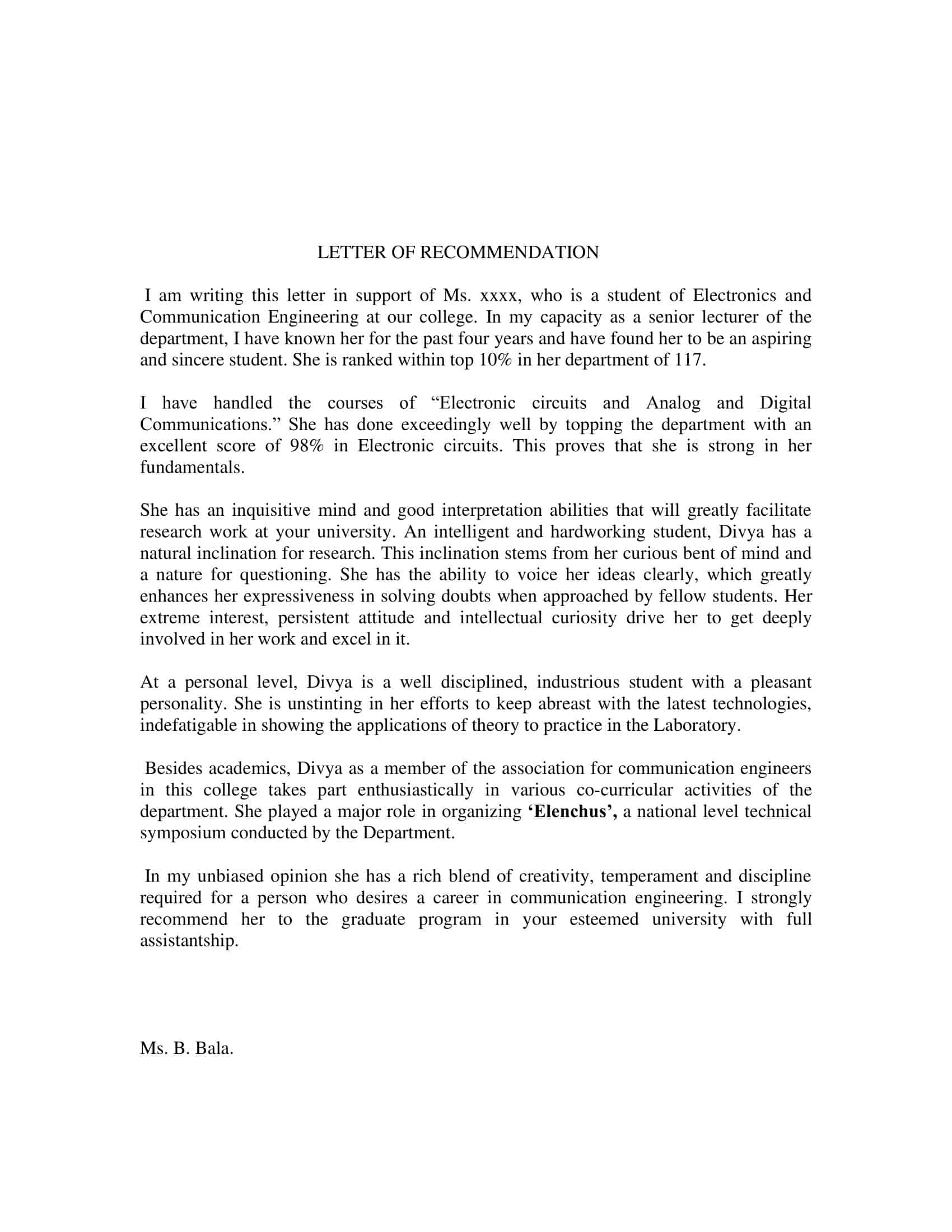




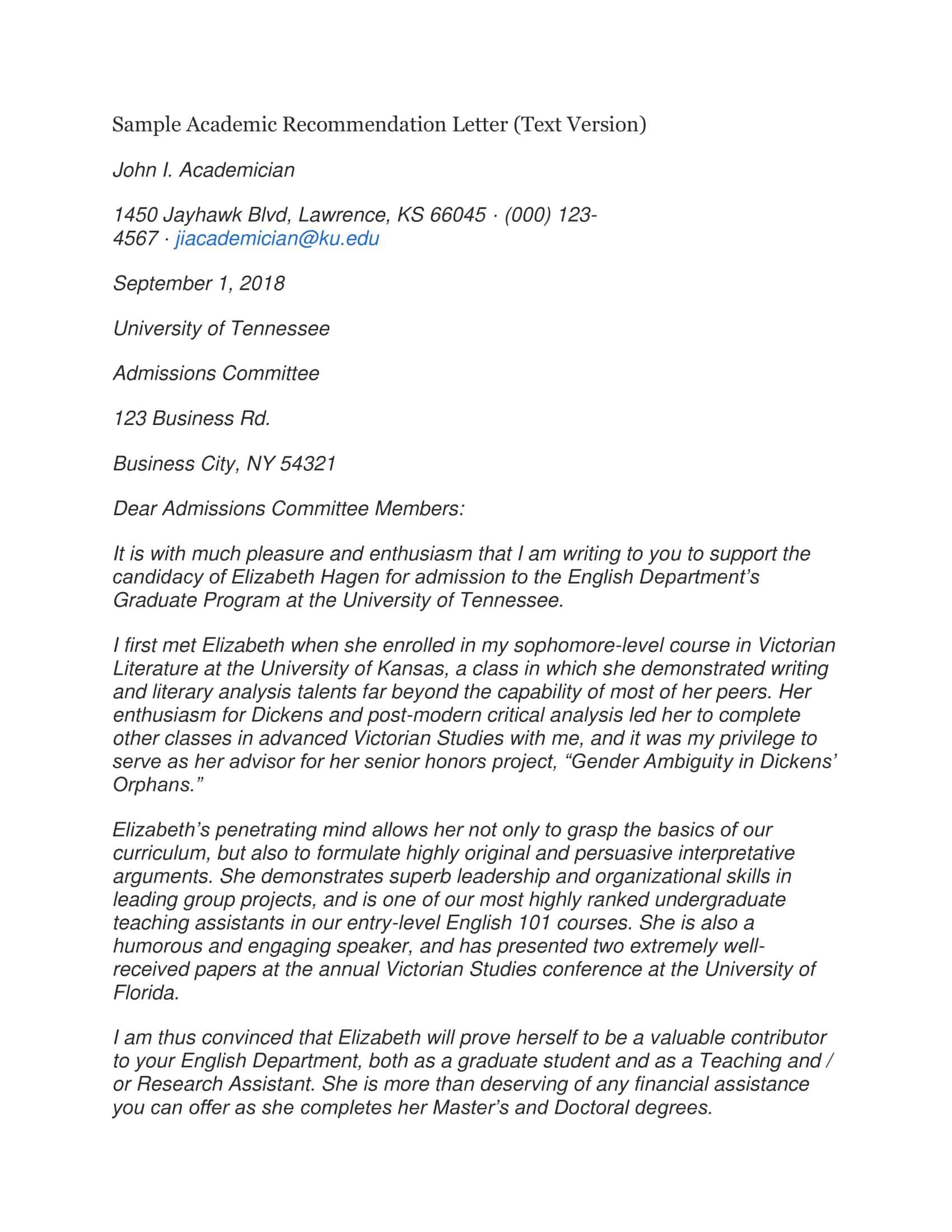
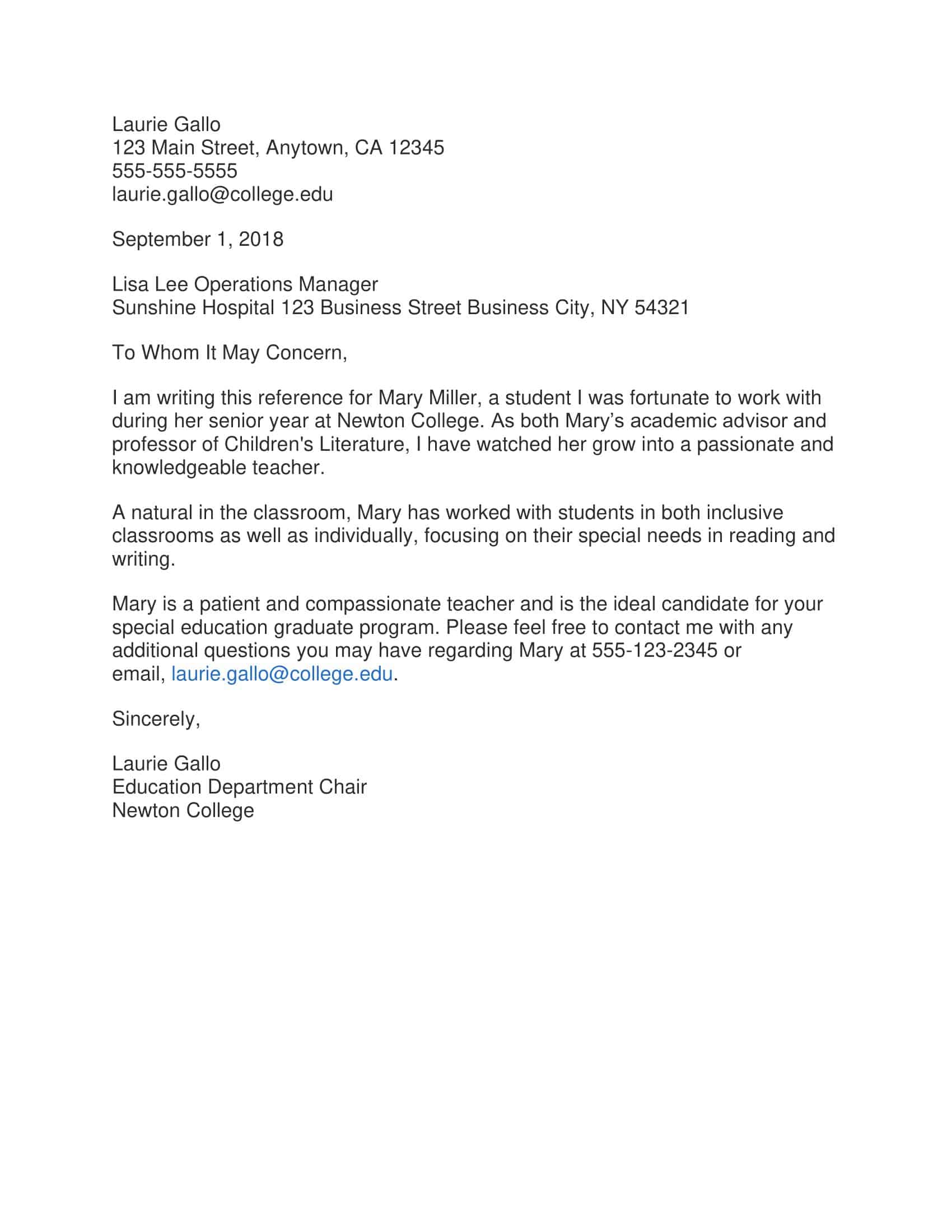



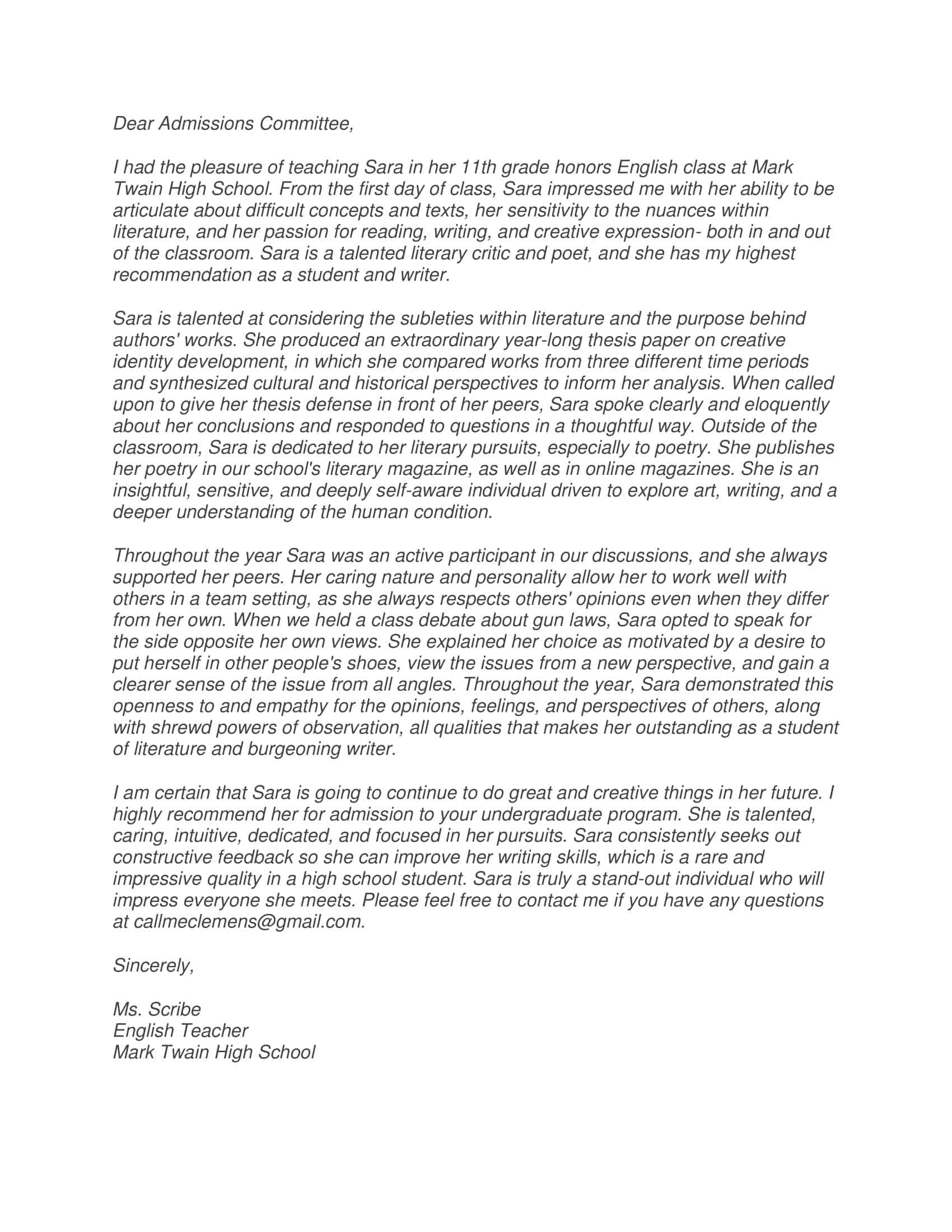





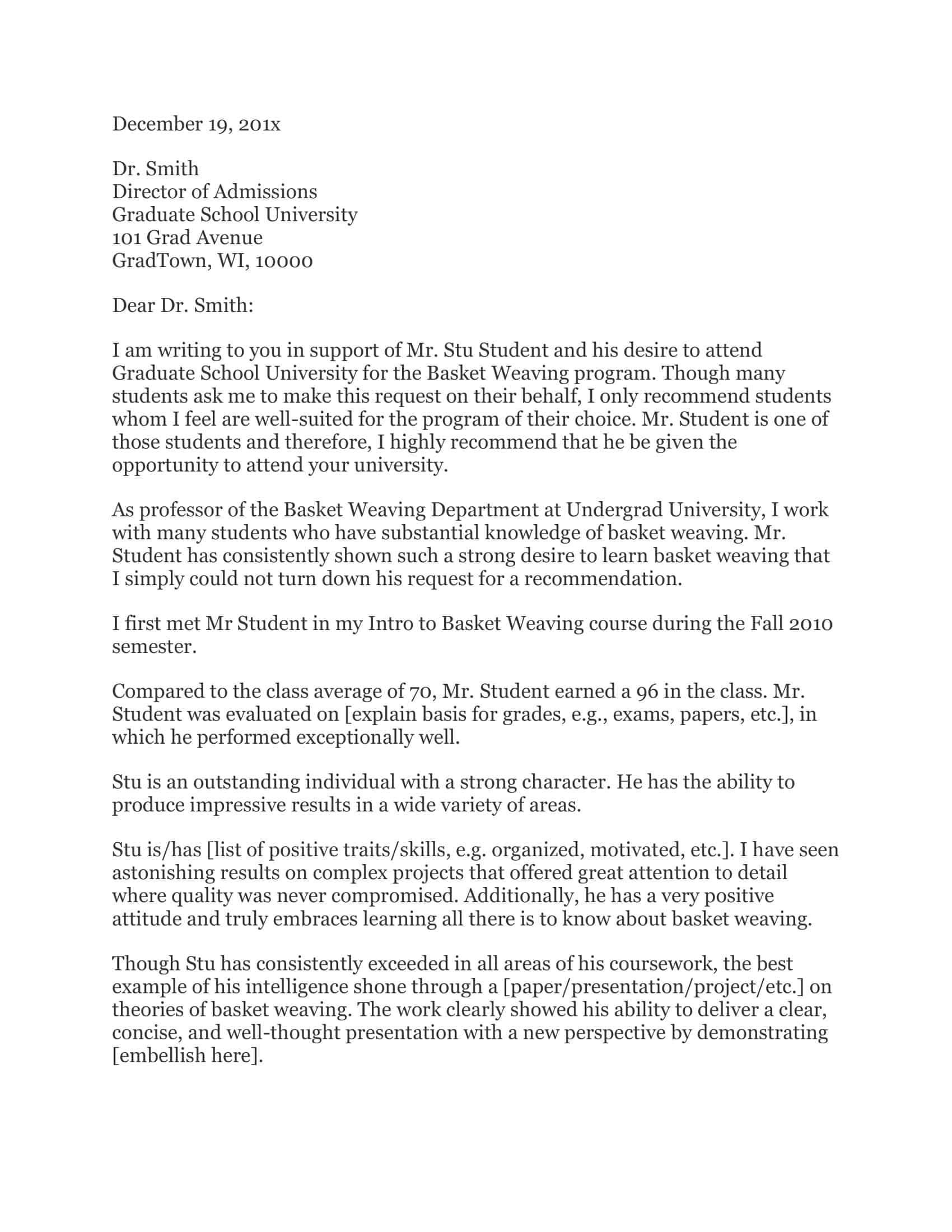
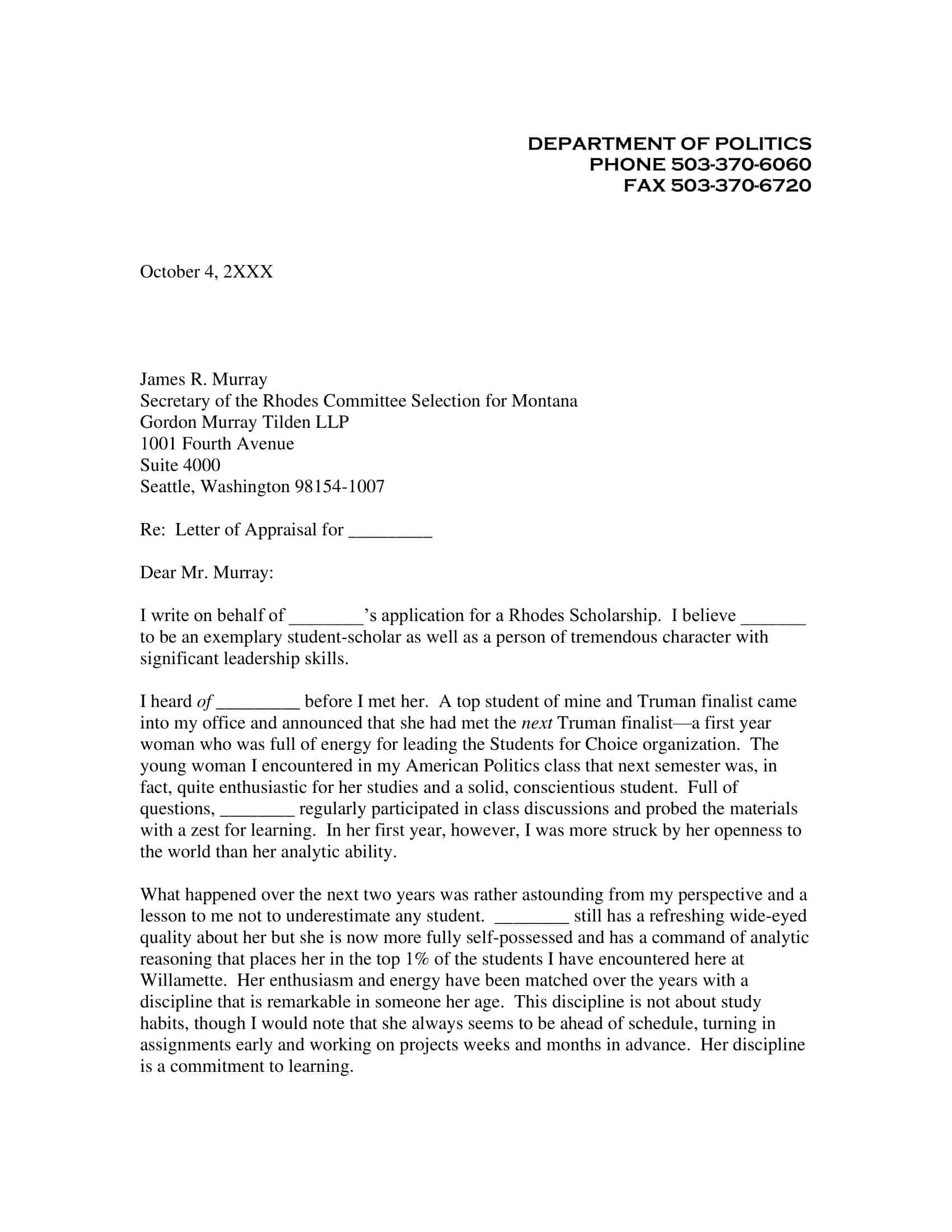




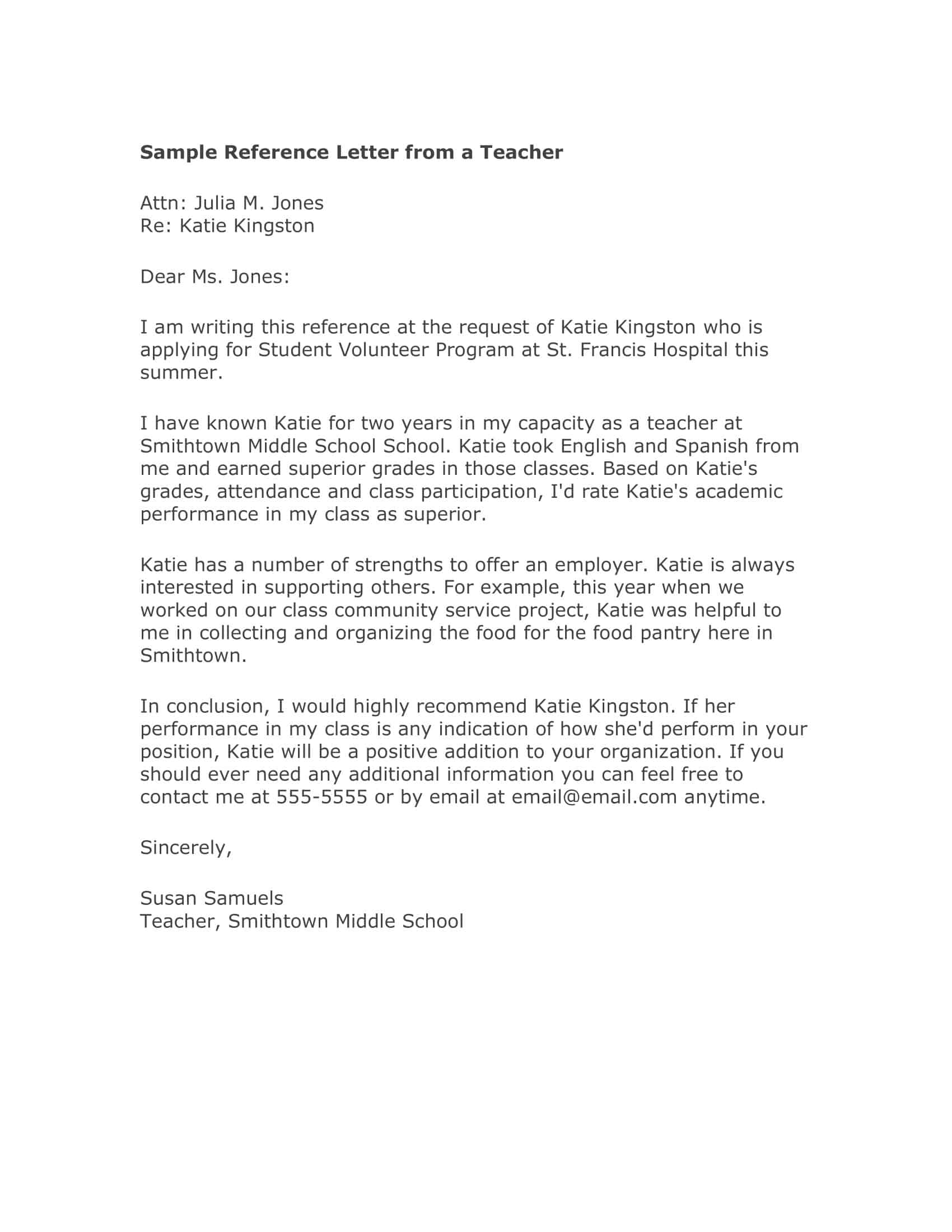

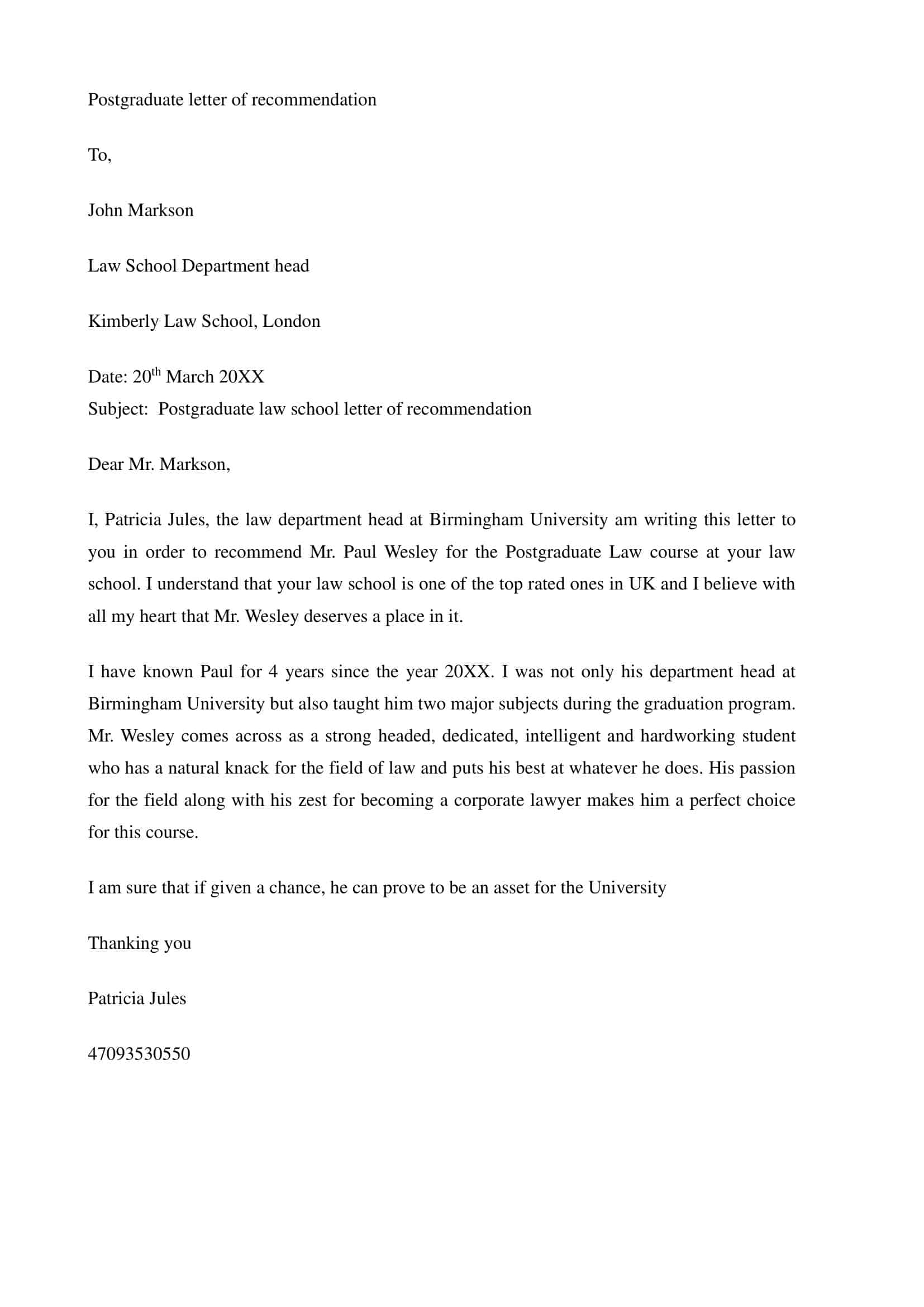








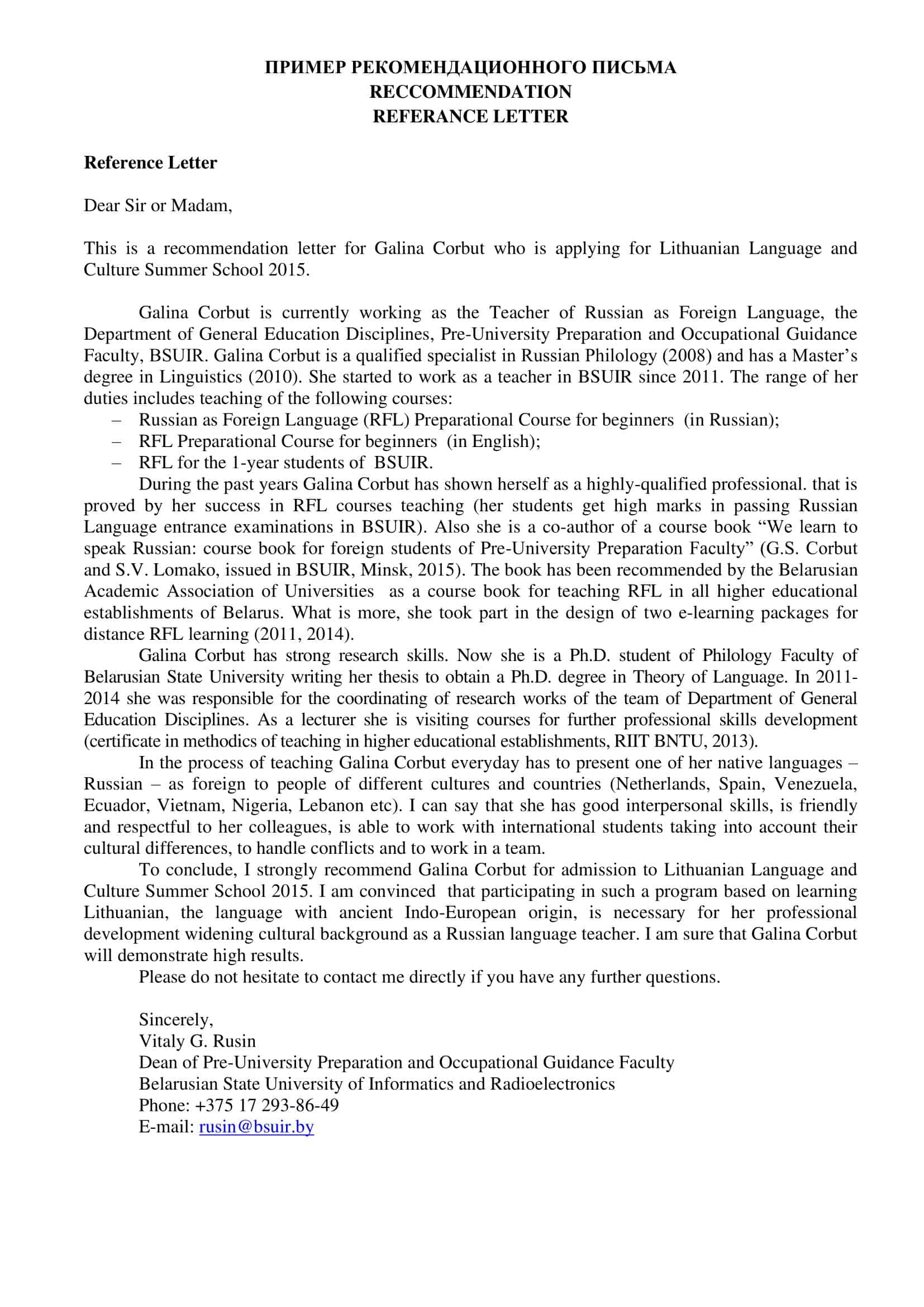
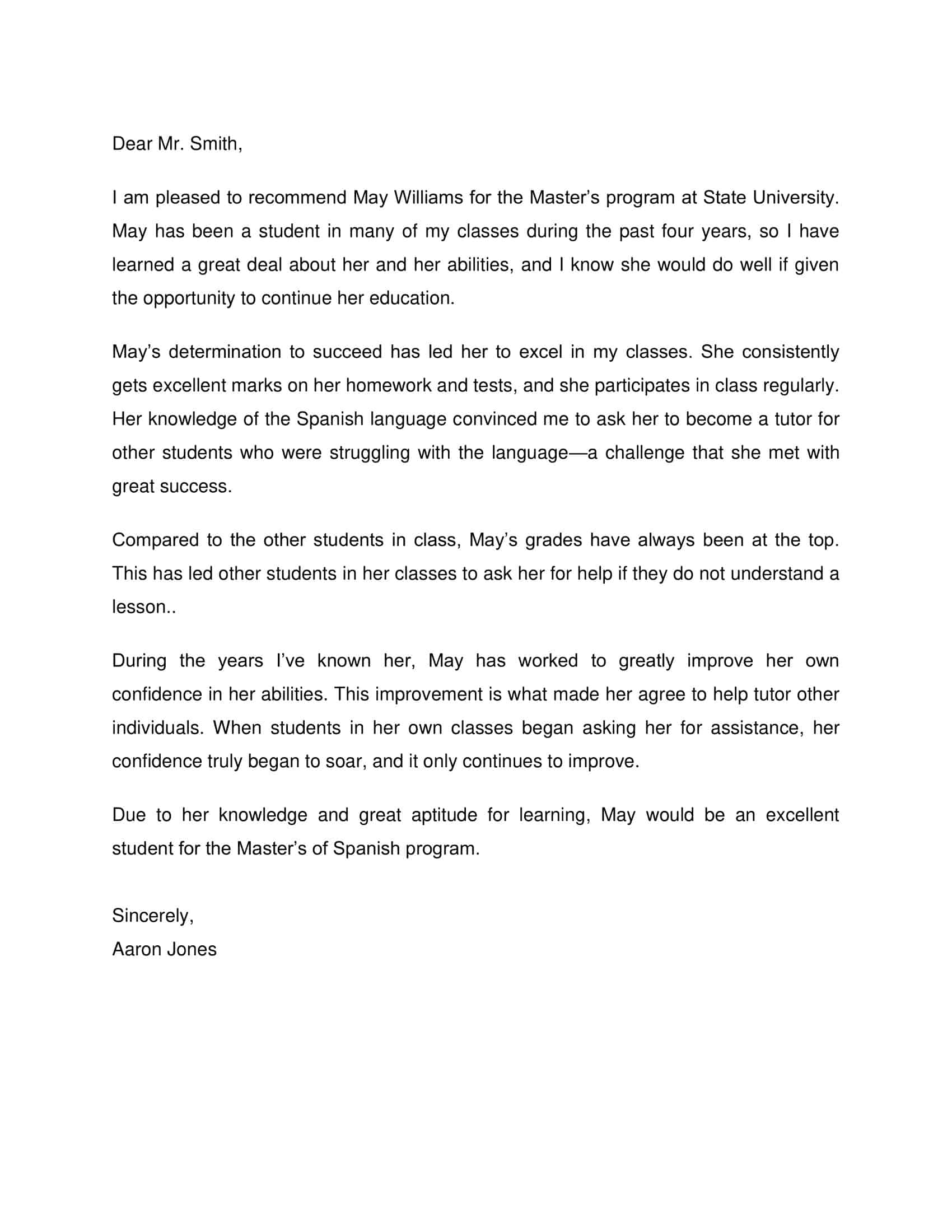
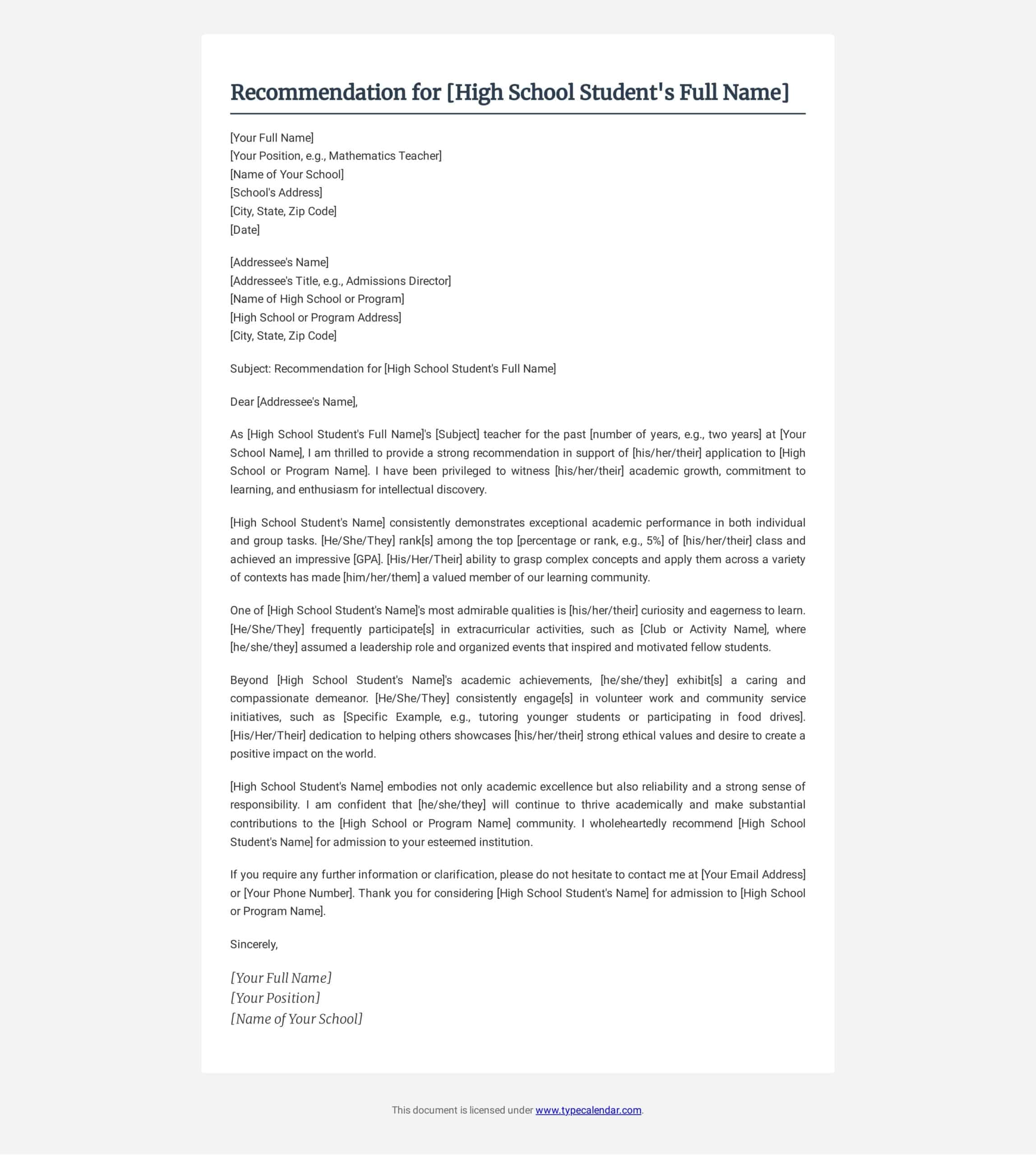
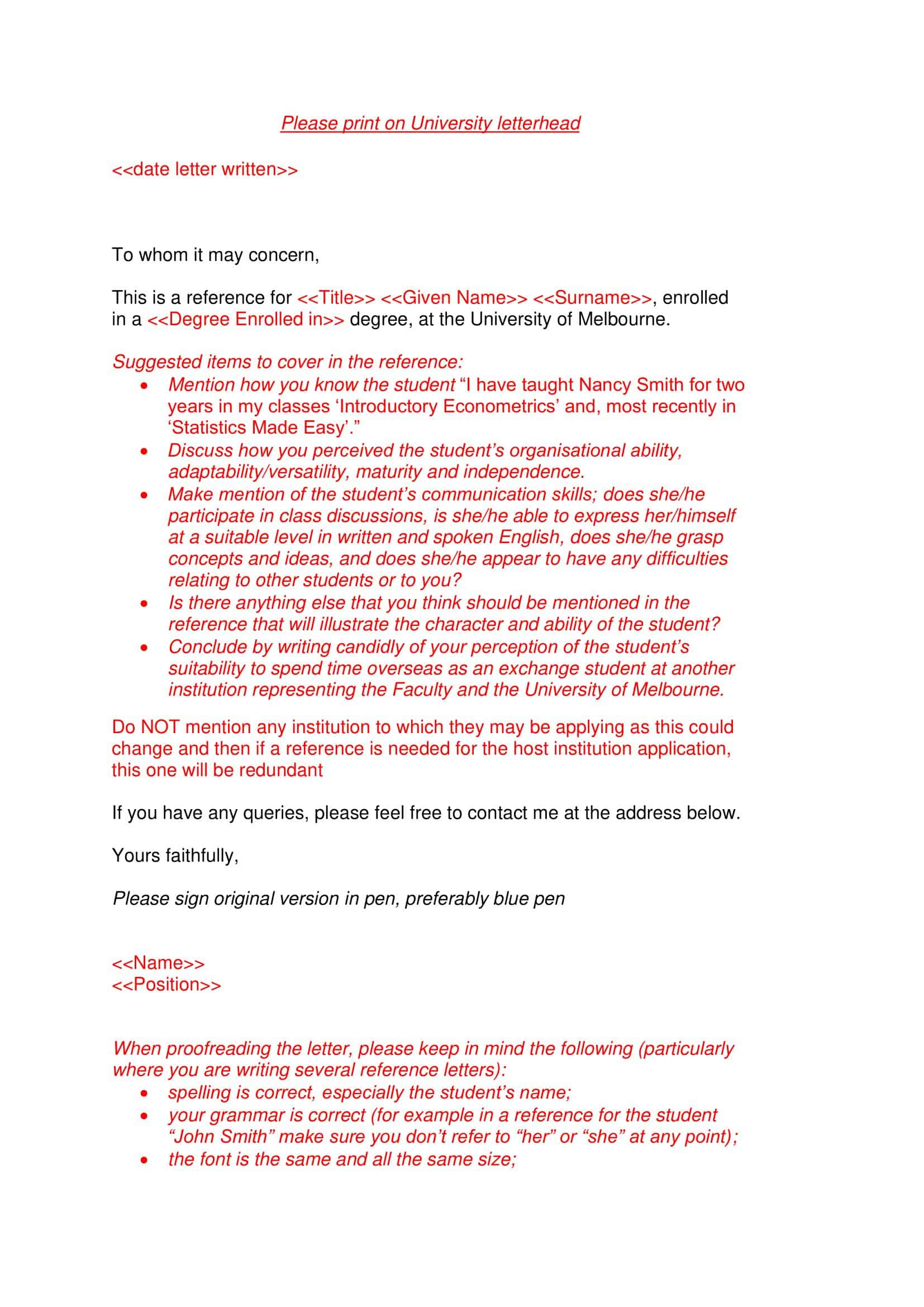
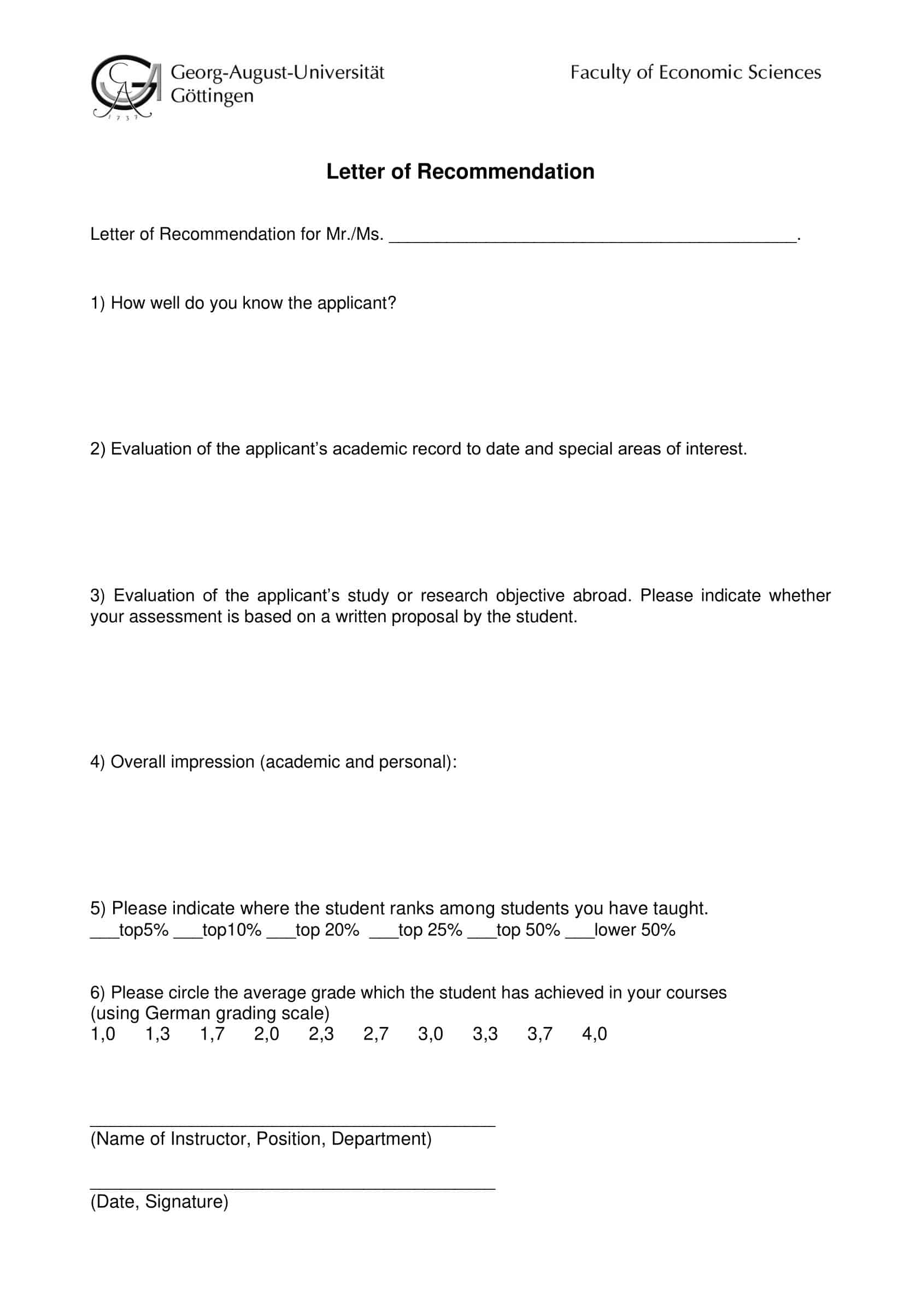
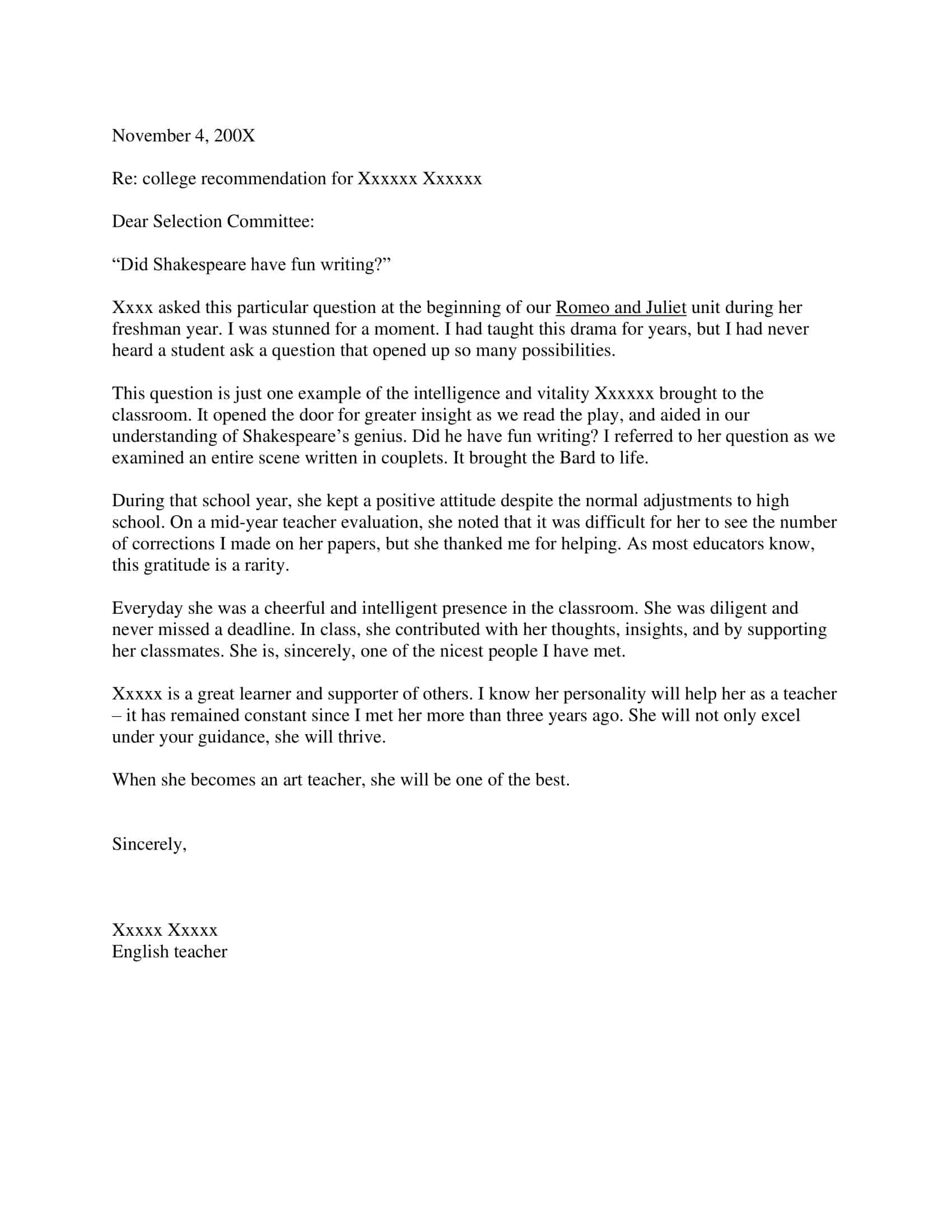
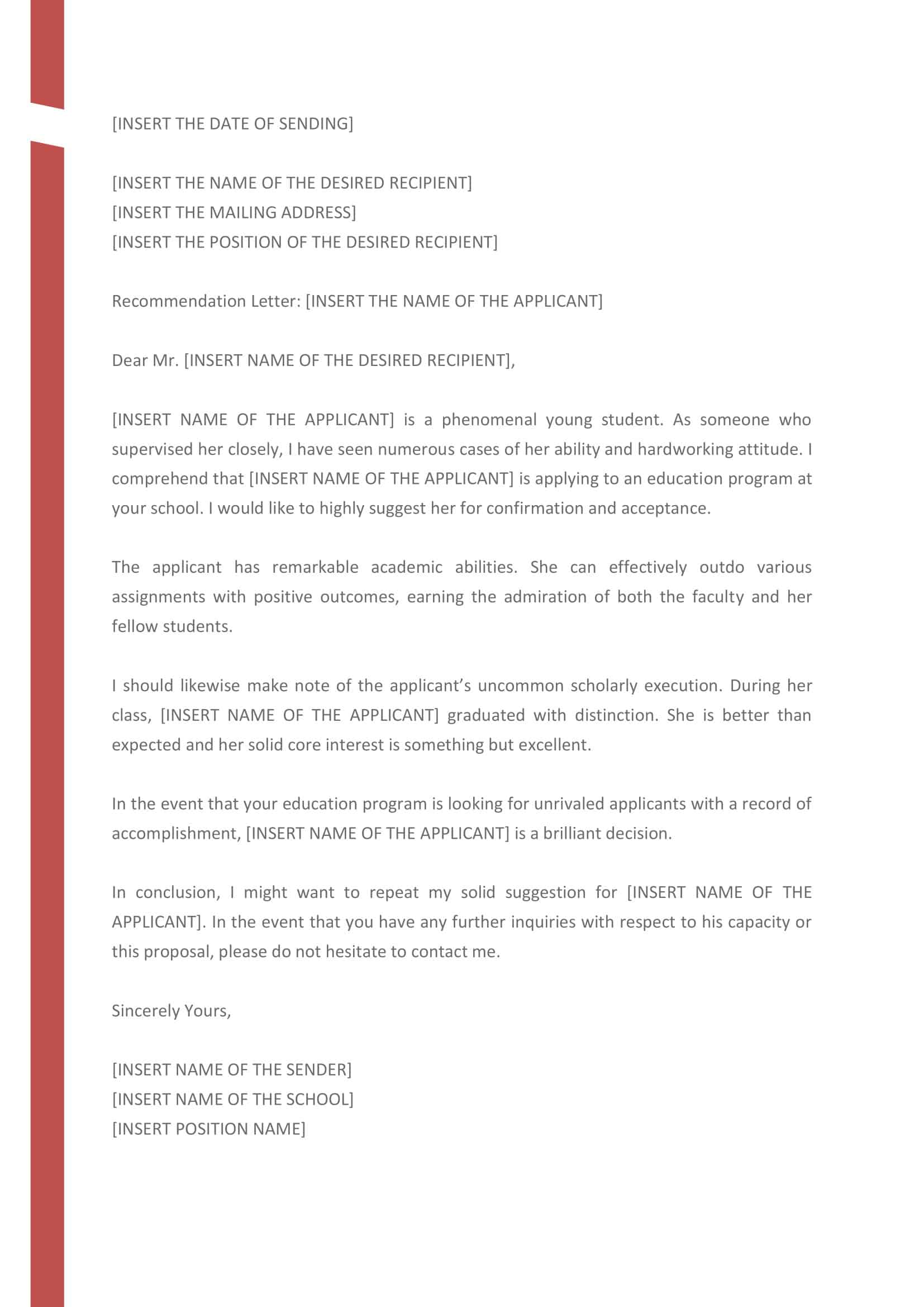
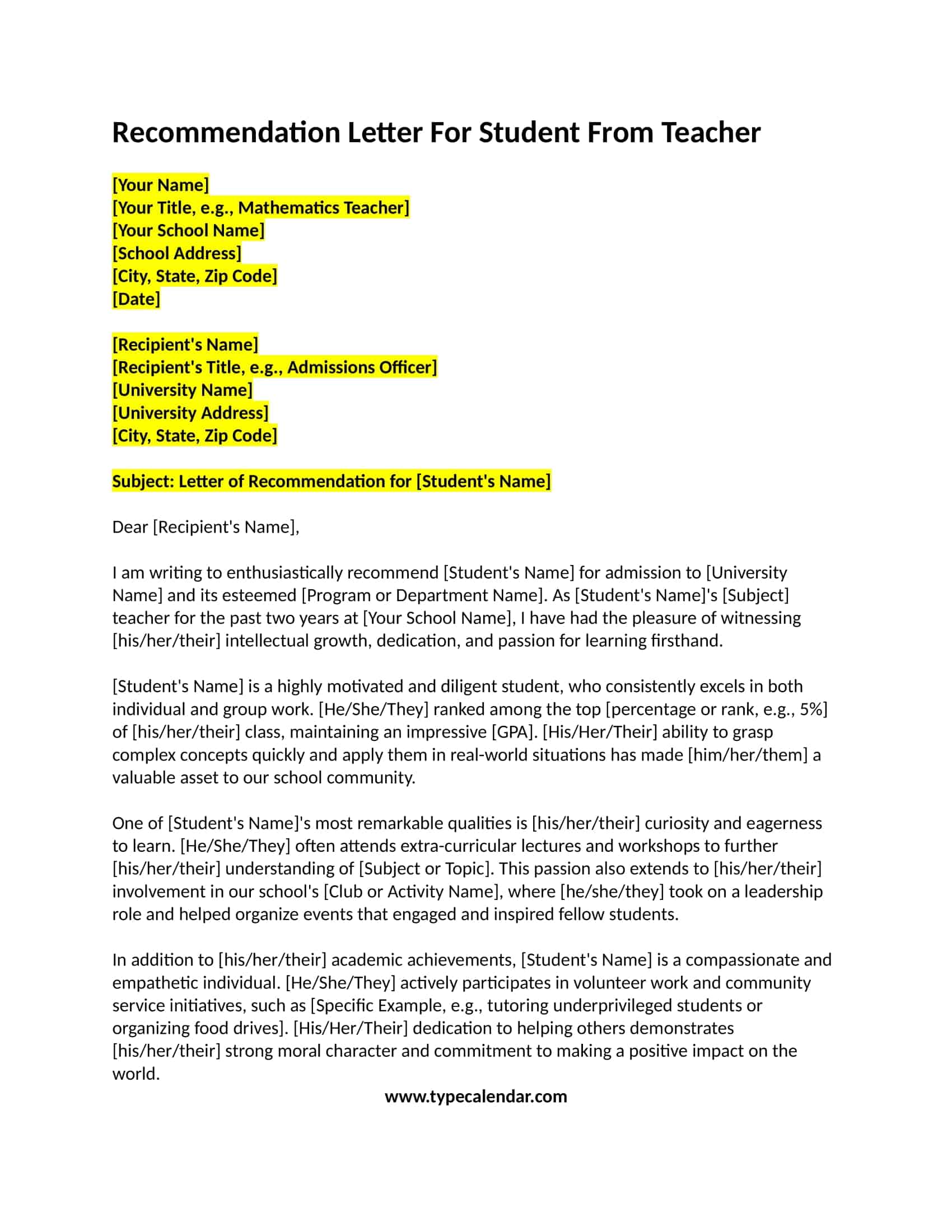
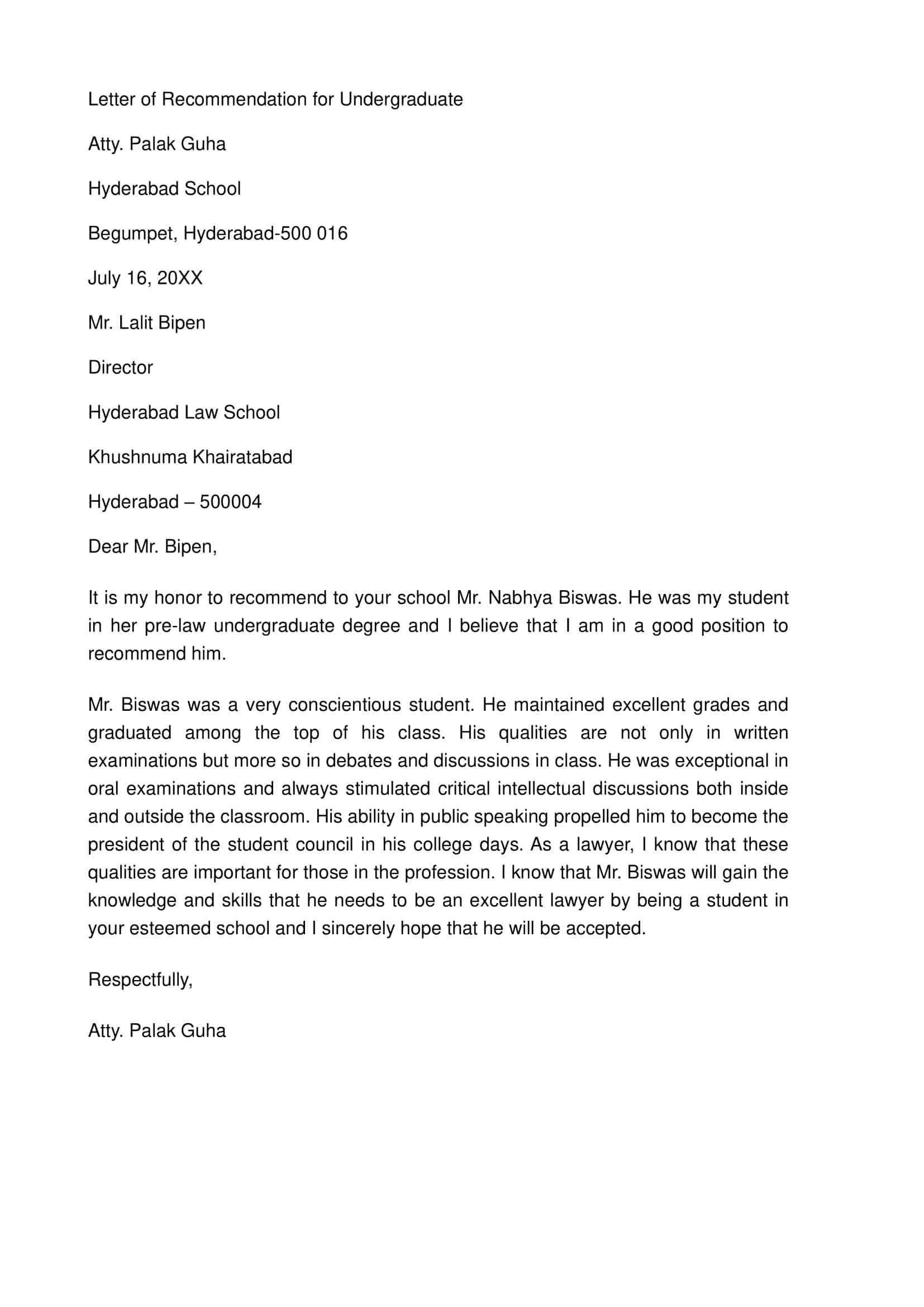
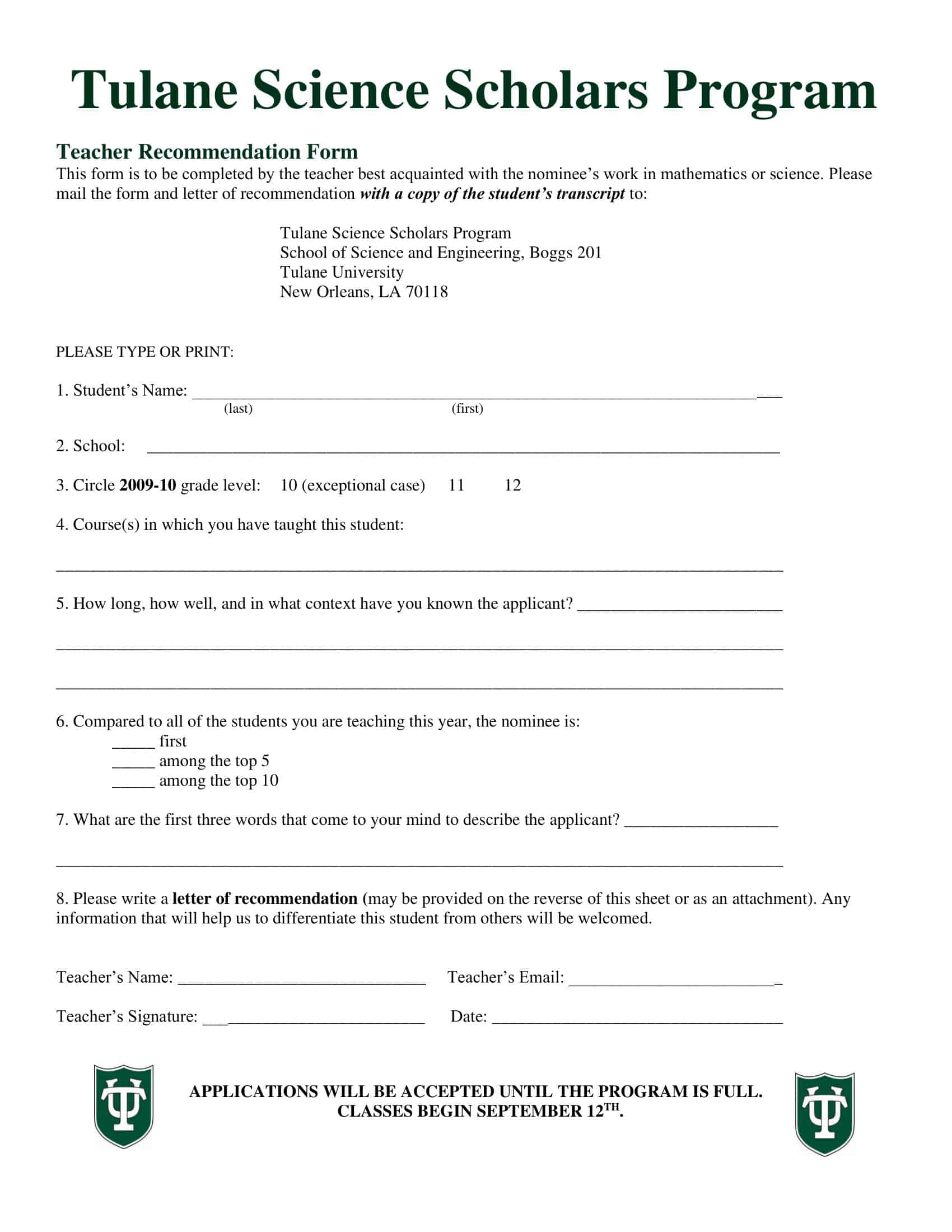
![Free Printable Friendly Letter Templates [PDF, Word, Excel] 1st, 2nd, 4th Grade 1 Friendly Letter](https://www.typecalendar.com/wp-content/uploads/2023/05/Friendly-Letter-150x150.jpg 150w, https://www.typecalendar.com/wp-content/uploads/2023/05/Friendly-Letter-1200x1200.jpg 1200w)
![%100 Free Hoodie Templates [Printable] +PDF 2 Hoodie Template](https://www.typecalendar.com/wp-content/uploads/2023/05/Hoodie-Template-1-150x150.jpg)
![43+ Printable Leave of Absence Letter (LOA) Templates [PDF, Word] / Free 3 Leave of Absence Letter](https://www.typecalendar.com/wp-content/uploads/2023/01/Leave-of-Absence-Letter-150x150.jpg 150w, https://www.typecalendar.com/wp-content/uploads/2023/01/Leave-of-Absence-Letter-1200x1200.jpg 1200w)
